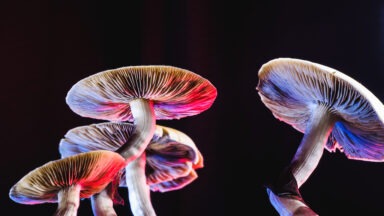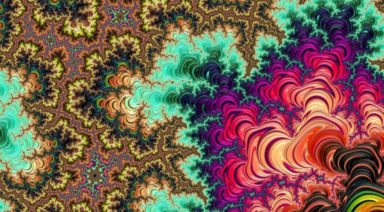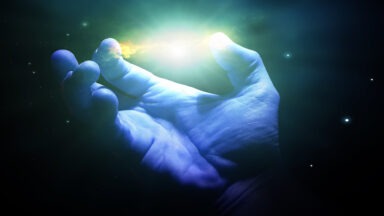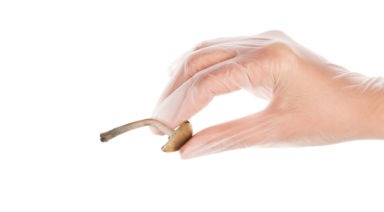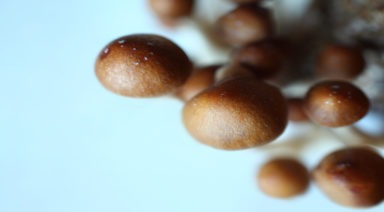Cannabis Spirituality: Using Plant Medicine as a Sacred Tool
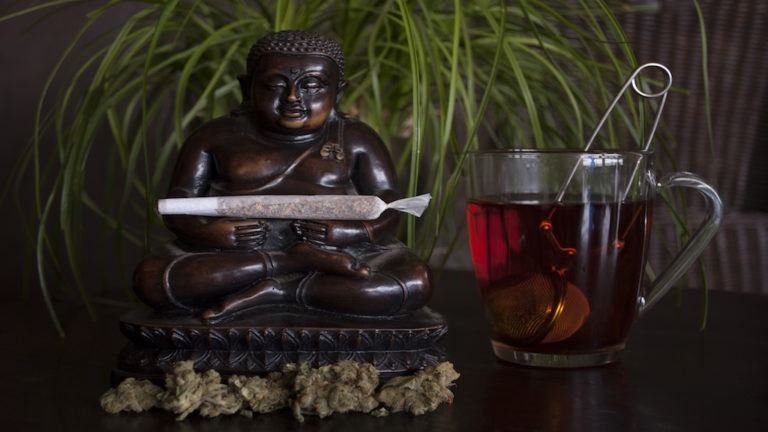
The stoner stereotype is a familiar one that transcends cultures – lazy, incoherent, silly, and just generally burnt out. But as legalization allows cannabis to be discussed maturely, that trope seems like a dying remnant of the decades-long smear campaign against a plant that can truly impact our lives, culture, and economy in a positive way. With that relaxation of stigma, society can explore a path of cannabis use for spirituality and use it as a tool for inner exploration.
Much like any other psychedelic substance, cannabis can be abused and consumed without respect to its potency, power, or healing potential. There’s virtually no harm in using it as a tool to relax and decompress from life’s daily stresses, but some might argue there’s a point of diminishing return when consuming copious amounts without the right intention.
And for religions that consider the plant sacred, this is typically their view on the use of cannabis — using it heedlessly is considered a sin or frowned upon, while using it for enlightenment or spirituality is accepted, and in some cases, encouraged.
Original Cannabis Spirituality
Cannabis has been used by certain groups as a sacrament for centuries and in some cases maybe even millennia. One of the most notable groups is Rastafarians, who use the plant for meditation and spiritual ceremonies, gathering in a “reasoning” to give praise to Jah (God), who they believe bestowed the herb to man in order to invoke thoughtful insight and self-reflection.
Rastafarians believe cannabis is mentioned in the Bible in Psalm 104:14 where it was written, “He causeth the grass to grow for the cattle and herb for the service of man….”
And in Revelation 22:2 “the herb is the healing of the nations.”
Rastafarianism believes cannabis was used as a sacrament by Moses and the Israelites. Rastas and some Jews believe the plant kaneh bosm, mentioned five times in the Old Testament, was in fact cannabis and an important sacrament for Judaism. Jewish scholars disagree on the translation, but if correct it would imply that the Hebrew Bible was originally blessed with cannabis oil.
Another well-known instance of the religious use of cannabis is found in Sufism, the “hippies of Islam,” who consume it in a liquid cocktail called bhang. In the Sufi tradition, cannabis is considered a vehicle to God and a “method to open the mind for the divine.”
While intoxication is considered antithetical to Sharia law in the minds of orthodox Muslims, Sufis interpret the Qur’an less literally. Also, they note that cannabis isn’t explicitly prohibited, like alcohol is.
And much like Sufis, there are certain followers of Hinduism who consider cannabis sacramental. According to the Vedas, cannabis is one of five sacred plants delivered to Earth by Shiva to purify amrita – the elixir of life. Hindu mythology holds that Shiva created cannabis from his own body and is occasionally depicted consuming it in the form of bhang.
Bhang is drunk widely during the Indian festival of Holi – the springtime celebration of good over evil, involving the dispersion of colorful dyes. Bhang is also consumed by some ascetics as a tool for meditation and spiritual introspection.
Hindu sages who consider cannabis sacred, believe the plant cleanses one of sins and helps to unify with Shiva, allowing one to avoid the miseries of negative karma in future lifetimes. They have also long believed in its medicinal value. However, using cannabis recreationally as a non-sacrament is thought to be sinful.
Using Cannabis Spiritually
Cannabis as a spiritual tool is subjective and there’s no one way to go about doing it. However, there are some best practices or guidelines you can adhere to in order to approach it the right way.
-
Know your tolerance level.
Cannabis is more potent than ever these days, so knowing how much you’re going to consume and how it’s going to affect you is important. Smoking or eating too much THC can ruin your experience, and for the neophyte, discourage you from using it in the future. THC, the intoxicating compound in cannabis elicits the production of a metabolite in the body called 11-hydroxy-THC. When THC is consumed orally through edibles, there are often greater levels of 11-hydroxy-THC produced than if it were inhaled or smoked. This is why people often report stronger effects from edibles.
Cannabis is a psychedelic drug and consuming too much of it can result in an experience similar to a mild trip one might experience on more powerful hallucinogens like psilocybin or LSD. Starting at a low dose is always a good idea. In fact, micro-dosing has even become popular among cannabis users wanting to experience its effects more subtly.
-
Set an Intention
Like any ritual or rite, an intention should be set before embarking on your spiritual quest. Whether it’s finding inner peace, doing some soul-searching, or connecting with a higher entity, sticking to an intention is important, especially with an intoxicant that tends to make the mind wander.
Consciously set an intention and reminders throughout your journey, focusing the mind on the thing you want to manifest. Putting this out into the ether and your consciousness can produce some profound effects.
-
Practice Awareness
Are you accomplishing what you set out? Are you comfortable? Is this serving you? These are questions you should ask yourself when trying to use cannabis spiritually, as it may or may not be the right tool for you.
Just like any psychoactive substance, and also the nature of our minds, thoughts may be fleeting. Negative and positive thoughts may flood the mind – embrace them, learn from them, and use them as a tool. Part of the utility of psychedelics is that they break down and reveal your ego to you. This can be difficult for some, but it’s the only way to learn from your experience.
-
Pick the Right Strain
While there are a million alleged strains of cannabis these days as far as hybrids go, there are two overarching strains – Sativa and Indica. The former is often described as a more heady, cerebral high that invokes thought and energy. The latter is typically described as a more “stoned” high inducing muscle relaxation and a soporific effect.
Depending on the intention you set, or your physical and mental preference, you may enjoy the feeling of one over the other. Meditation seems theoretically more conducive to the weightier Indica high, but if thought stimulation is your goal, a Sativa may be what you need.
-
Let the Medicine Do Its Job
Don’t overthink it. Find a comfort level, allow the cannabis to teach you what you need to know, and continue to use it appropriately and when necessary. Remember, always ask if it’s serving you the way you intended. If not, let it go and find another method.
Respect the plant and it will respect you. And don’t forget, there are other cannabinoids in the plant that can serve you aside from THC, especially the massively-popular CBD (cannabidiol) – the compound in cannabis thought to be responsible for much of the plant’s medicinal properties.
For those who experience anxiety or paranoia from THC, CBD often produces the opposite effect, being more of a relaxant and anti-anxiety cannabinoid, without the psychoactive effects of THC.
For more on the medicinal and spiritual properties of cannabis check out the Gaia original series: Psychedelica
Psychedelic-Assissted Therapy for Veterans and Personality Improvement
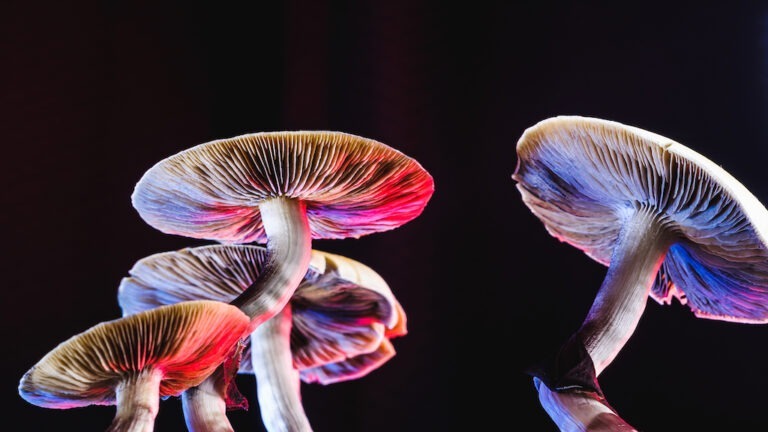
Psychedelic-assisted therapy at the VA
Psychedelic-assisted therapy has recently gained mainstream acceptance among civilians, but what about for members of the military and veterans?
This therapy may soon be an option for some veterans. As “Lucid” reports, “psychedelic-assisted therapy is on the rise at some veterans administration hospitals.”
Phase 3 clinical trials of MDMA therapy to treat post-traumatic stress disorder have been so successful, with 68 percent of participants in remission, the FDA granted MDMA a special ‘Breakthrough Therapy’ designation. But this therapy is not yet available all over the country, prompting more researchers to call on the VA to create protocols for MDMA, psilocybin, and ketamine therapies. These psychedelics are still classified as Schedule 1 narcotics, and it will take political will and bipartisan support to win FDA approval.
If that happens, researchers at the forefront of these therapies hope to see VA hospitals nationwide using psychedelics to help veterans by the year 2024.


